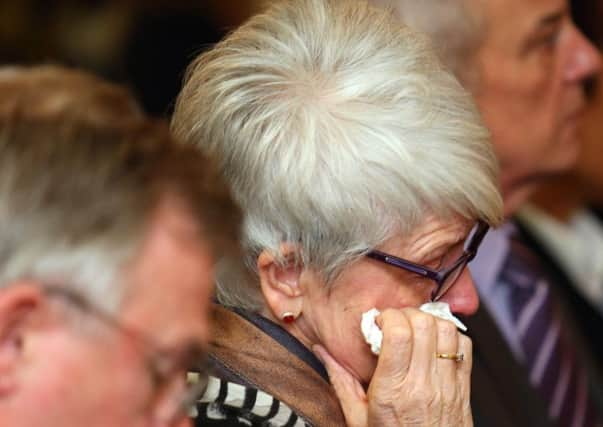Five medical colleges back child death reforms


The children were being treated at the Royal Belfast Hospital for Sick Children died from hyponatraemia-related conditions from 1995 to 2003.
The condition happens when the level of sodium in blood becomes abnormally low.
Advertisement
Hide AdAdvertisement
Hide AdIn a joint statement, five royal colleges - the Royal College of Paediatrics and Child Health; Anaesthetists; Pathologists; Surgeons and Surgeons of Edinburgh - said transparency within the health system was vital, the BBC reported.
The royal colleges are professional bodies for doctors and such a collective response is unusual and reflects the seriousness of the issue.
They have backed the establishment of a board which would hold managers and civil servants to account for systemic failures.
The statement says the development of a statutory duty of candour should be “a high priority item”, but that “the issue of criminal liability and its potential impact on patient safety must be carefully assessed”.
Advertisement
Hide AdAdvertisement
Hide AdTheir response supports the vast majority of the 96 recommendations made by Justice O’Hara in January after the 14-year inquiry into the deaths, and stresses the importance of honesty, transparency and tightening reporting.
Dr Ray Nethercott from the Royal College of Paediatrics and Child Health said their greatest sympathy was with the bereaved families.
“I work with colleagues who wake up every morning wanting to do the very best for the children they treat,” he told BBC News NI.
“Nobody wants these tragedies to happen. But when they do, it’s only right that we admit to mistakes and look closely at what went wrong, why, and who is accountable.
Advertisement
Hide AdAdvertisement
Hide Ad“I recognise now more than ever that health care delivery is extremely complex, it is incumbent on us all to seek ways to make it easier to understand and to much more clearly describe who has accountability when mistakes are made.”
Dr Nethercott said the group had made an open offer to the Department of Health to work with them to implement the inquiry recommendations.